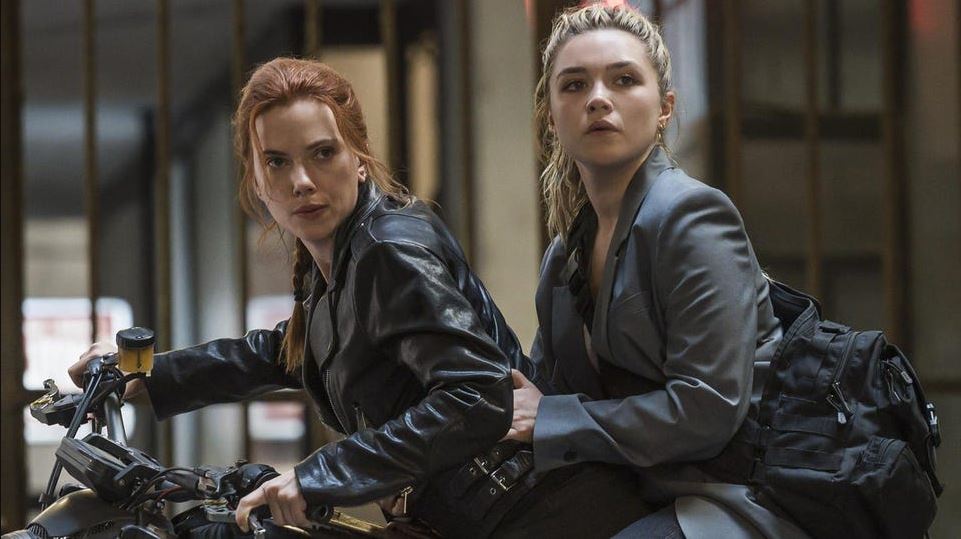
That Black Widow, the new superhero extravaganza starring Scarlett Johansson, is in some circles being labeled a “standalone” film speaks to the bizarre taxonomy of the Marvel Cinematic Universe. Here is a movie that’s littered with countless references and asides to the lore of cinema’s most fearsome global behemoth: the Avengers, S.H.I.E.L.D., Wakanda, the Sokovia Accords, “the god from space.” It stands alone the same way the Dread Pirate Roberts stood alone—invisibly lifted by associates toiling in the background. So when Natasha Romanoff (Johansson) at one point declares, “I’m actually better on my own,” the meta claxon that blares in accompaniment is louder than any of the fiery explosions that engulf the film’s tedious climax. If the plot of Black Widow features a woman striving, at long last, to locate some agency (not to be confused with locating an agency, though she essentially needs to do that as well), the subtext involves a taut, character-driven action flick seeking to assert some independence while also maintaining fidelity to the broader scriptures that govern the MCU.
It’s a tricky balance, but cinematically speaking, Natasha is right; she is better headlining her own picture than functioning as part of a bulky ensemble. Most superheroes are, frankly. The final two Avengers team-ups, as insistently epic and intermittently enjoyable as they were, suffered from bloat and congestion, dutifully apportioning screen time and subplots across their gargantuan casts. In contrast, relatively streamlined adventures like Thor: Ragnarok and Black Panther benefited from a sharper sense of focus, not to mention a genuine artistic sensibility. Black Widow isn’t quite as good as either of those movies, lacking their piercing wit and visual flair. But it’s a fleet and efficient piece of blockbuster filmmaking, one that, despite all of those aforementioned references, stands sturdily on its own.
It helps that the screenplay, credited to Eric Pearson (from a story by Jac Schaeffer and Ned Benson), doesn’t expend too much energy contextualizing Black Widow within the franchise’s exponential sprawl. Yes, William Hurt pops up again as a military bigwig, and there’s the obligatory post-credits scene that teases a future conflict (which may end up playing out on television). But this is Johansson’s eighth time playing the titular avenger (excluding her appearance in the stinger to Captain Marvel), and director Cate Shortland is smart enough to productively leverage our familiarity with the actor; when she stares intently into a bathroom mirror, it says more about Natasha’s haunted past than any exposition dump ever could.
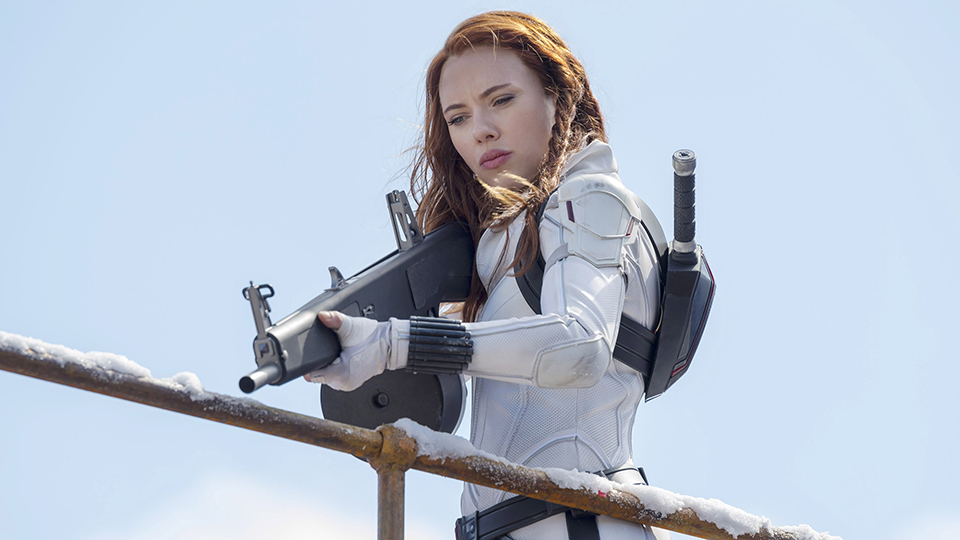
In elemental terms, Black Widow functions as a fairly typical story of rescue and redemption. Natasha, who in a past life worked as a sleeper agent for Russian intelligence before defecting to join Tony Stark and his costumed crew, learns that the Red Room—the malevolent Soviet facility that once indoctrinated young girls like her and turned them into mindless assassins—remains operational. Desperate to atone for prior misdeeds, in particular a bombing that led to the death of a child, Natasha resolves to eradicate the organization—a plan that incorporates the twin aims of freeing its prisoners and clearing her conscience.
The plots of Marvel movies tend to be incidental to their real reasons for being—the quippy dialogue, the flashy costumes, the fan service. Yet as superhero missions go, Natasha’s is at least moderately intriguing, and not just because it reminded me of the deliriously entertaining Red Sparrow. I won’t pretend that the MCU has suddenly given birth to a new wave of feminism, but Black Widow does center women, on both sides of the camera, in ways that feel more than tokenistic. (This is surely the first comic-book feature to mention fallopian tubes.) Thematically, the concept of powerful men systematically subjugating vulnerable women and bending them to their will carries an undeniably creepy charge; that level of discomfort is only multiplied here in light of the chief villain, General Dreykov, being played by Ray Winstone. Shortland, perhaps hamstrung by the sanitized constraints of the PG-13 rating (not to mention the family-friendly mandate of an enterprise that’s ultimately ruled by Disney), doesn’t fully flesh out the ugliness of this conceit, nor does she lend the Red Room any real visual signature, instead opting for the anodyne aesthetic that typifies so many of the MCU’s hangars and offices. But by simply granting her heroines a sincere motivation, she endows the film with a certain purpose that eludes most of the franchise’s MacGuffin-snatching escapades.
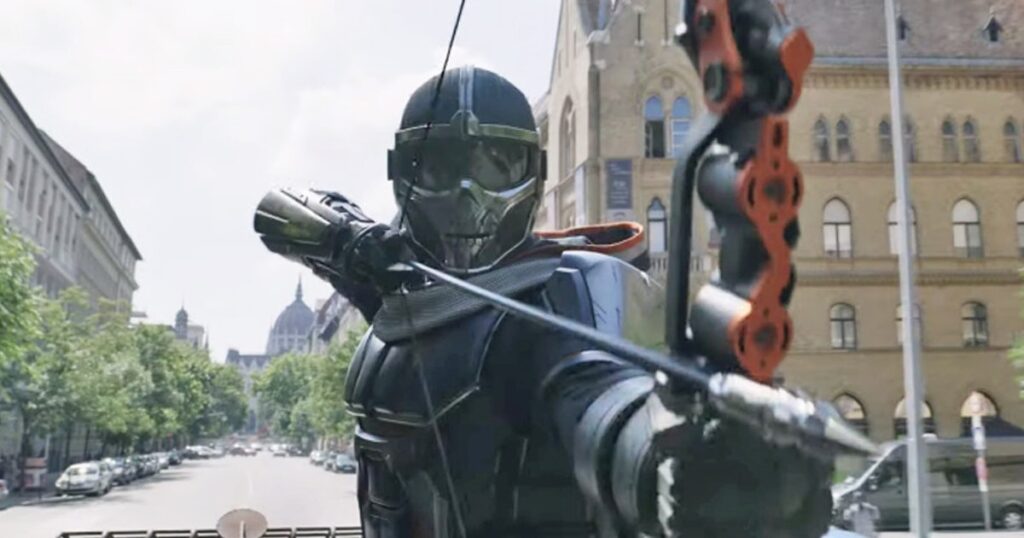
Note that I said heroines, plural. That’s because, for all of its globe-trotting and base-infiltrating, the heart of Black Widow lies in the relationship between Natasha and her adopted sister, Yelena (a characteristically excellent Florence Pugh). After we first meet Yelena during a prologue set in Ohio in 1995—a tense sequence involving a frantic escape that recalls The Americans, and which bleeds into an absorbing title sequence set to Think Up Anger’s spooky cover of “Smells Like Teen Spirit”—we encounter her in the quasi-present as an agent of the Red Room; initially, she’s a programmed killing machine, but when one of her targets sprays her with a billowing red gas, the cloud of Dreykov’s sinister brainwashing evaporates. (Just go with it. Also, just go with Johansson and Pugh playing siblings who are aged maybe five years apart, even though the former is 11 years older than the latter; this is far from the least realistic element in the movie.) Yelena immediately adopts Natasha’s goal of freeing their fellow female slaves, but the dynamic between them is complicated, given that Natasha essentially abandoned her sister when she left their native country (and dropped her Russian accent) to chase bad guys with Captain America.
Shortland, whose prior credits include the grim World War II drama Lore and the absolutely riveting thriller Berlin Syndrome, is no fool; she recognizes that she has two great actors in her employ, and she lets them work. The bantery dialogue in Black Widow isn’t especially elegant, but Johansson and Pugh nonetheless exhibit a wonderful chemistry, a fraught sororal bond that comprises mistrust, warmth, hostility, and admiration. Moments where Yelena boasts about her pocket-laden vest or mocks Natasha for her ostentatious fighting poses are among the most relaxed and agreeable of the entire franchise.
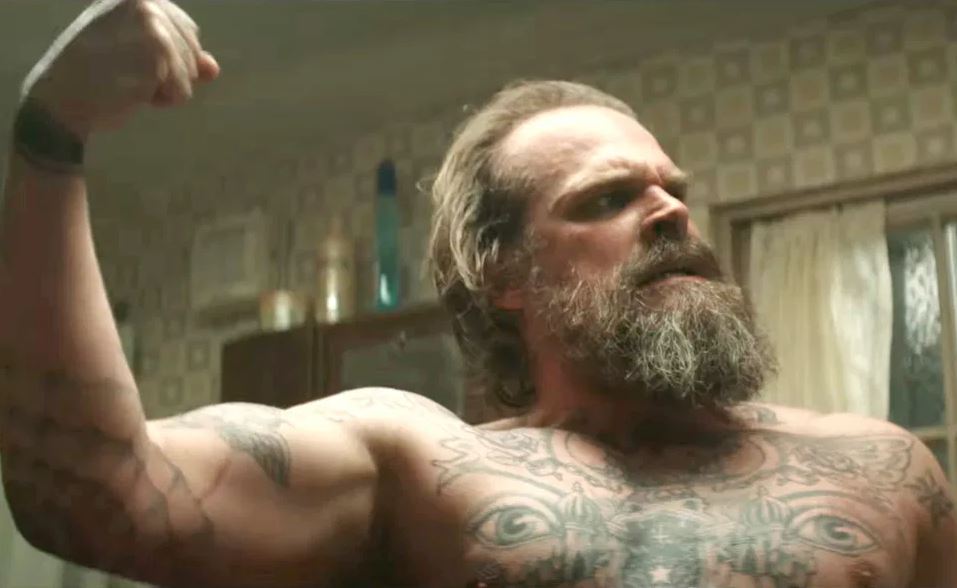
And really, Black Widow works best not as an actioner but as a dysfunctional family comedy. Eventually, Natasha and Yelena reunite with their surrogate parents, the wily Melina (Rachel Weisz) and the uncouth Alexei (David Harbour, having the time of his life). A lengthy interlude at Melina’s pig farm outside of Saint Petersburg, which recalls a similar sequence from Avengers: Age of Ultron, reveals the elders’ considerable differences in both appearance and temperament; Melina is svelte, crisp, and sensible, whereas Alexei is fat, crude, and vaguely deranged. This means that the heavily bearded patriarch is awarded some of the script’s biggest laughs, whether it involves him squeezing into a decades-old leotard or expressing pride that both of his daughters are mass murderers. (He’s also pathetically obsessed with comparing himself to the Avengers; having not seen Natasha in ages, his first question to her after she and Yelena break him out of a Siberian prison is, “Did Captain America say anything about me?”) But there’s legitimate tenderness on display as well, never more so than in a lovely scene where Alexei and Yelena mumble their way through a mournful rendition of one of American pop music’s most iconic hits.
Of course, this is still a superhero movie, meaning it features the usual assemblage of fights, flights, and detonations. On the whole, Shortland handles these set pieces fairly well, investing them with more punch and snap (not to mention a crunchingly broken nose) than the typical weightless kerfuffle. The sisters’ first meeting, a fierce clash in Yelena’s Budapest apartment, unfolds with a violent physicality that recalls The Bourne Identity (any object can be a weapon!), while a subsequent car-and-tank chase relies more on tangible destruction than special effects. The film also supplies a suitably scary antagonist in the form of the Taskmaster (played by, wait, is this a spoiler?), a hulking and hooded creature who scans as a hybrid of the Terminator and Michael Myers; he can mimic virtually any MCU hero, which accounts for his nifty deployment of arrows, claws, and shields. Only during the final act, with its compulsory fireballs and incoherent freefalls, does Shortland’s sense of grit succumb to the chaotic imperatives of the blockbuster. (She does earn bonus points, however, for paying homage to Point Break.)
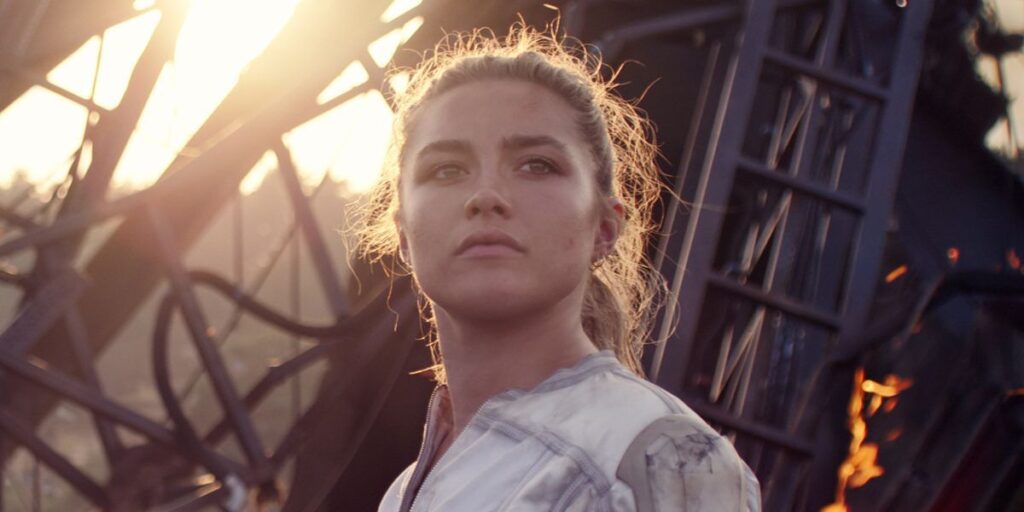
Speaking of succumbing, you may have forgotten (I certainly did) that Natasha Romanoff is dead; she died midway through Avengers: Endgame. (To preserve MCU continuity, the events here take place between Captain America: Civil War and Avengers: Infinity War.) This means that Black Widow almost certainly represents Johansson’s last time playing the character, and while it’s a fitting swan song, it also provides her with a worthy successor in Pugh. Already one of the world’s most talented actors, the 25-year-old Briton has mostly appeared in arthouse productions (Little Women, Midsommar), but here she proves perfectly adept in the mainstream world, imbuing Yelena with a complex combination of brittle vulnerability, sharp intelligence, and quiet pain. The selfish part of me would rather Pugh focus exclusively on original properties (have you seen The Little Drummer Girl or Lady Macbeth? Wow!), but her career isn’t a zero-sum game, and she’s more than capable of anchoring her own franchise in her spare time. After all, that vest has enough pockets to hold fat paychecks from Marvel alongside the inevitable Oscar or three.
Grade: B
Jeremy Beck is the editor-in-chief of MovieManifesto. He watches more movies and television than he probably should.
